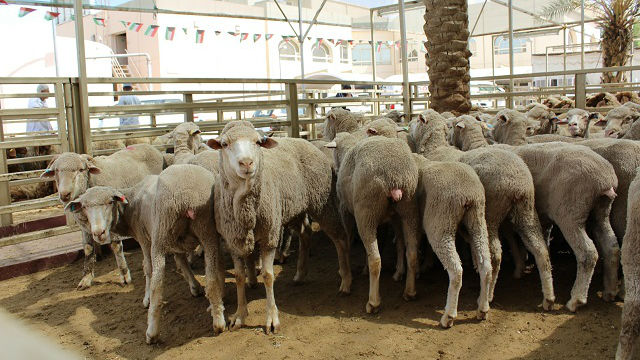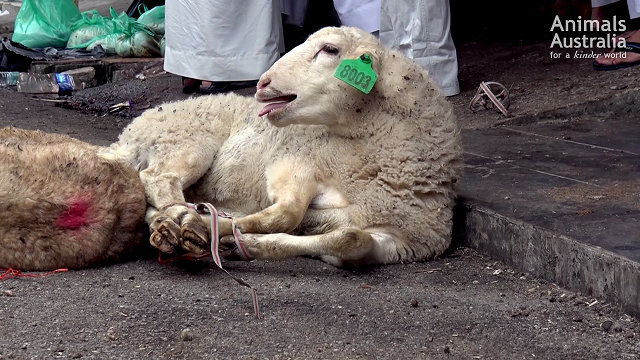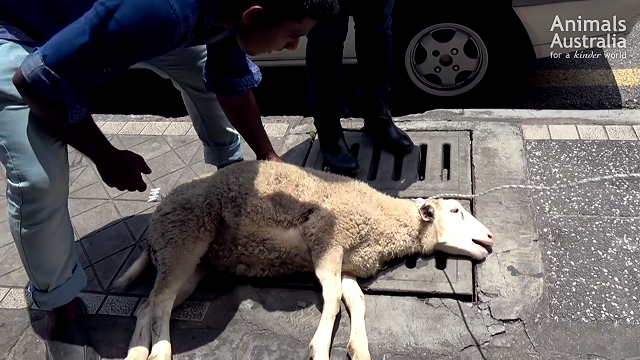Australia Boosts Animal Welfare During Festival of Sacrifice

Australia livestock exporters and their in-country partners have been proactive in Middle East and South-East Asia markets during Muslim Festival of the Sacrifice celebrations over the past week. Along with animal welfare groups, they are aiming to minimize the risk of poor animal welfare and supply chain breaches in the nation's live export trade.
Australia is a leading exporter of both cattle and sheep, but is the only country in the world with legislation that decrees that the welfare of Australian-originated livestock remains the responsibility of the Australian exporter. The livestock retain their national identity to the point of slaughter, irrespective of any subsequent ownership transfer. The legislation has not been adopted by any other of the more than one hundred livestock exporting nations.
Simon Westaway, CEO of the Australian Livestock Exporters' Council said that Australian exporters had played a significant role in achieving further progress in festival markets this year, but they have also identified some instances of Exporter Supply Chain Assurance System (ESCAS) non-compliance. Under ESCAS, Australian livestock must not be sold outside of approved supply chains and cannot be purchased for home slaughter or for slaughter at facilities that have not been approved as meeting international animal welfare standards. Special control systems were implemented for Australian sheep in markets celebrating the religious holiday, over and above ESCAS requirements.
“Where any Australian sheep were detected outside of approved facilities, including in countries like Malaysia, Oman and Kuwait, our exporters have pro-actively reported the breaches to the regulator and outlined the immediate steps taken, where possible, to return animals to approved supply chains,” Westaway said.
“Streamlined supply chains, carcase-only sales and the supply of smaller volumes to many markets has reduced the risk of oversupply and demonstrates that Australian exporters’ highest priorities are control, traceability and the welfare of livestock,” Westaway said. “The continual improvement Australian industry is achieving is hard-earned and reflects a genuine determination to realize our ‘no fear, no pain’ animal welfare objective.
“Poor welfare outcomes are never acceptable,” Westaway said.
Animal welfare group Animals Australia has been involved for several years documenting cases of poor animal welfare., Campaign Director, said: “Animals Australia would speak about the recent Festival of Sacrifice in far less positive terms than the Australian Livestock Exporters' Council. Full transparency requires revealing that during the recent Festival tens of thousands of Australian animals had their throats cut while fully conscious – a practice permitted in approved supply chains. The terrifying and painful deaths these animals suffered, in addition to being shipped in extreme heat, could not be further from the live export industry’s ‘no fear, no pain’ stated goal.”
Five years of Animals Australia’s complaints to Australia's Department of Agriculture resulted in a restriction of sales of Australian sheep at Kuwait’s Al Rai Livestock market. “While we welcome this development, Australian sheep were still being trussed and shoved into car boots in 50 degree heat at the market, and in Malaysia illegal sales and slaughtering of Australian sheep was occurring at a number of premises reported last year,” said Chalk.
“Full transparency requires the admission that this is a Festival that incorporates enormous suffering to animals from many countries. The cruelty animals endure has nothing to do with religious or cultural traditions, rather it is the result of massive numbers of animals being handled and slaughtered in one day. What is needed is a unified industry approach to encourage festival participants to support voucher systems operating in many countries whereby religious obligations can be met through having an animal ‘sacrificed’ in their country of origin.
“Ensuring that animals were slaughtered in Australia, under Australian regulations, would result in an overall reduction in suffering that Australia’s sheep meat industry could legitimately be proud of,” says Chalk.
Australian animal welfare organization RSPCA has condemned the live export of Australian animals. Senior Policy Officer Dr Jed Goodfellow says this year's festival shows that non-compliance with animal welfare regulations is just part of doing business when it comes to live animal export.
“Supply chain and animal welfare breaches are an inevitable feature of when the live export industry is intent on supplying animals during such high-risk periods as the Festival of Sacrifice. The industry knows this, the Department of Agriculture knows this, and the Minister knows this. Yet all continue sending Australian animals into conditions that would simply not be tolerated in Australia,” he says.
“It is also important to remember that even when regulations are followed, animals are still subject to the cruelty of non-stunned slaughter in the Middle East. How can the industry seriously talk about realising a ‘no fear, no pain’ objective without insisting that all animals are stunned before their necks are cut?”
Animals Australia has provided images of Australian sheep below taken in Malaysia last week.



